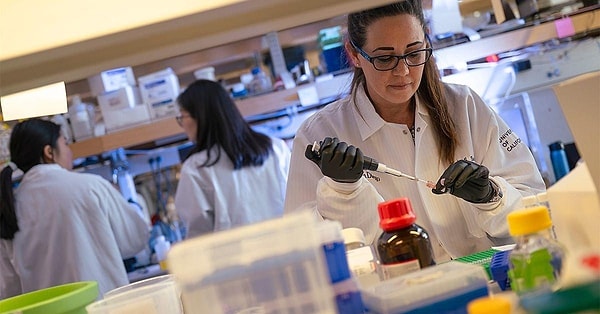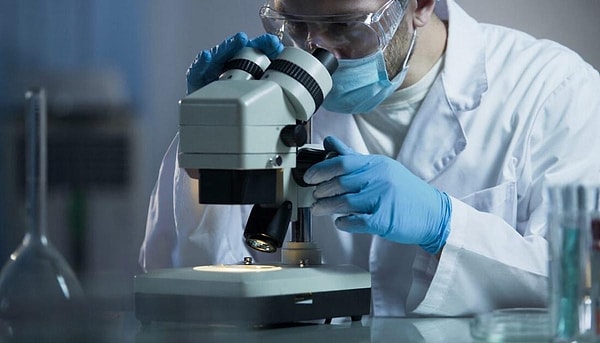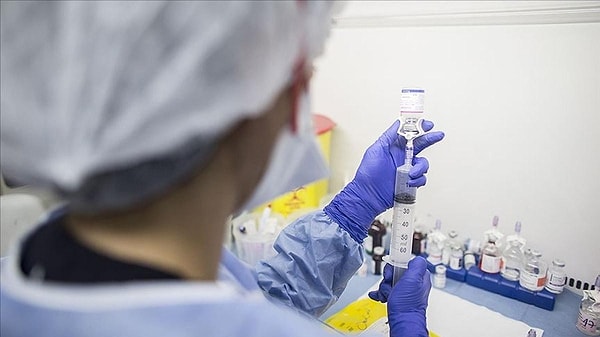New AI Algorithm Develops 32 Different Drugs for Cancer Treatment
Researchers at the University of California have developed an artificial intelligence algorithm named POLYGON. This AI platform, believed to pave the way for the development of 'multi-target drugs' in cancer treatment, has assisted in the synthesis of 32 potential multi-targeted cancer drugs. This groundbreaking progress in the medical field could not only revolutionize cancer treatment but also offer hope in the treatment of many other diseases. Here are the details👇
New Artificial Intelligence Platform Designs Future Cancer Drugs: So far, it has helped synthesize 32 potential multi-targeted cancer drugs.

Scientists at the University of California, San Diego, have developed a machine learning algorithm that could speed up the drug discovery process and open the door to new treatment methods.
With this artificial intelligence algorithm, scientists aim to accelerate the identification and optimization of candidate drugs. Moreover, the algorithm has been used in the synthesis of multi-targeted cancer drugs, resulting in the identification of 32 new drug candidates. This development appears to be part of a new and growing trend in using artificial intelligence to improve the drug discovery process.
Simulated Chemistry: POLYGON!

The new platform called POLYGON stands out from other artificial intelligence tools with its ability to identify molecules with multiple targets. It can define molecules with multiple targets. As a result, it could lead to significant advancements in 'multi-target drugs' instead of focusing solely on single-target methods.
So, What Are 'Multi-Target Drugs'?

These 'multi-target drugs,' which scientists are contemplating and prioritizing, have the potential to achieve the same success as combined therapies with fewer side effects. However, discovering and developing new drugs, especially multi-target drugs, can take many years and millions of dollars. POLYGON could expedite this process and help initiate the next generation of precision medicine.
POLYGON was trained on a database containing chemical properties of over a million bioactive molecules and their interactions with protein targets.

This allows it to generate original chemical formulas for new candidate drugs with specific properties such as the ability to block certain proteins.
So far, for testing POLYGON, hundreds of candidate drugs targeting various cancer-related protein pairs have been produced. Among these candidates, 32 molecules with the strongest interactions with MEK1 and mTOR proteins were synthesized. These two proteins, when blocked together, can kill cancer cells.
The synthesized drugs were found to have significant activity against MEK1 and mTOR but minimal off-target reactions with other proteins. This indicates that drugs identified by POLYGON could target both proteins in cancer treatment and provide a list of options for human chemists to fine-tune.
Researchers are optimistic about exploring the possibilities of artificial intelligence in drug discovery.

Trey Ideker, a professor of medicine, computer science, and bioengineering at UC San Diego, reminds us that all other chemistry needed to turn candidate drugs into a single, effective treatment still needs to be done. However, he also mentions that it's possible to shorten some steps in the drug discovery process.
Ideker expresses excitement about seeing how this concept will perform in both academia and the private sector in the next decade, noting that the possibilities are nearly endless.

He also emphasizes the importance of artificial intelligence in the pharmaceutical industry. According to him, we are in a time where biotechnology ventures struggle to raise funds without including artificial intelligence in their business plans. Ideker states, 'AI-driven drug discovery has become a highly active area in the industry, but unlike methods developed in companies, we are making our technology open source and accessible to anyone who wants to use it.'
Keşfet ile ziyaret ettiğin tüm kategorileri tek akışta gör!


Send Comment